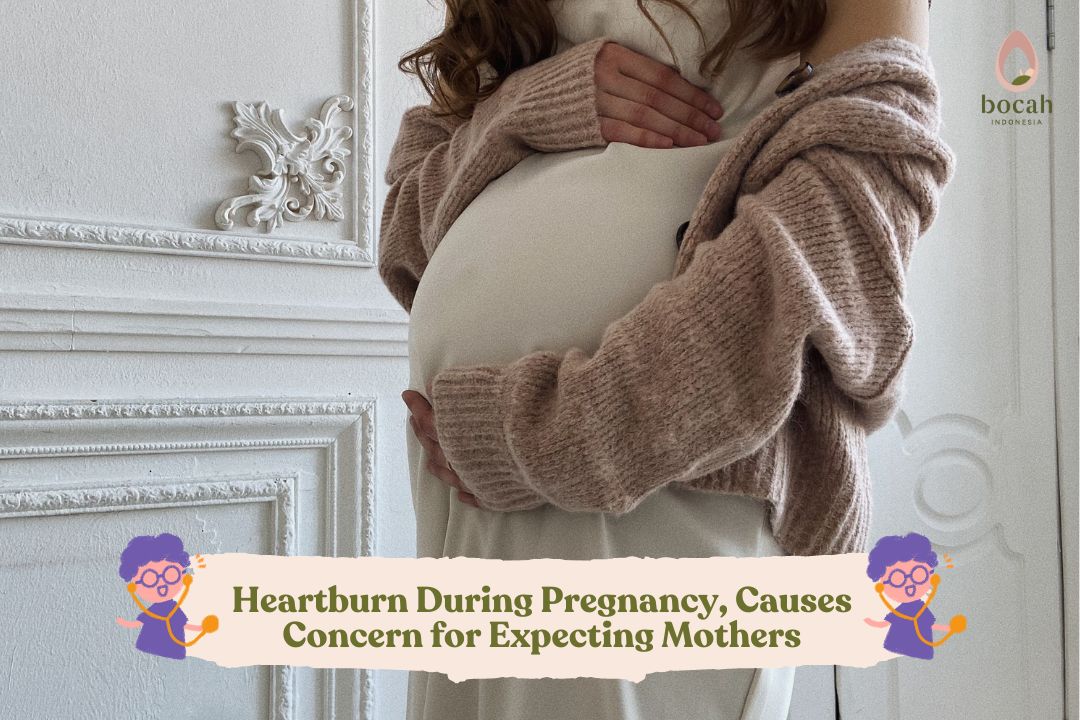Breathlessness That Makes Expectant Mothers Tearful

Shortness of breath is a symptom that some women may experience during pregnancy. Find out what causes it and how to address it here.
According to a study published in Clinical Cardiology in 2015, it is estimated that about 60–70% of women experience shortness of breath during pregnancy. This condition is also known as dyspnea.
The causes include the growth of the uterus pushing upward on the lungs and an increase in hormones. Typically, shortness of breath during pregnancy is not harmful. However, in some cases, more serious pregnancy complications can lead to breathing difficulties.
Treatment usually involves the use of home remedies unless there is an underlying cause that requires medical intervention.
Causes of Chest Tightness during Pregnancy
Chest tightness or shortness of breath is a symptom that some pregnant mothers may experience. The causes of chest tightness in pregnant women can vary and include several factors:
Tanya Mincah tentang Promil?
1. Physiological Changes
During pregnancy, the body undergoes various physiological changes. One of them is an increase in the production of the hormone progesterone, which can relax the chest wall muscles and lead to a sensation of shortness of breath.
2. Increased Oxygen Demand
Pregnancy increases the demand for oxygen, not only for the mother but also for fetal development. This can lead pregnant women to feel the need to take deeper and more frequent breaths, resulting in a sensation of shortness of breath.
3. Increased Uterine Pressure
The growth of the uterus during pregnancy can push the diaphragm (the main breathing muscle) upward. This can limit the diaphragm’s ability to contract efficiently, making breathing feel more difficult.
Chest tightness in pregnant women can occur in all trimesters, but during the third trimester or starting around week 29, expectant mothers may experience either easier or more difficult breathing, depending on the position of the developing baby’s head.
In the weeks approaching birth, the baby’s head begins to rotate and descend further into the pelvis, making it feel as if the baby’s head is under the ribcage and pressing on the diaphragm, making breathing more difficult.
According to the National Women’s Health Resource Center, this type of shortness of breath typically occurs between weeks 31 and 34 of pregnancy and may also be accompanied by persistent dry cough.
4. Increased Blood Volume
During pregnancy, the body’s blood volume significantly increases. The heart has to work harder to pump this increased blood volume, which can lead to a sensation of shortness of breath in some pregnant women.
5. Asthma or Respiratory Disorders
If a pregnant woman has a history of asthma or other respiratory issues, pregnancy can affect these conditions and lead to exacerbations or worsened respiratory symptoms.
Pregnancy can worsen existing asthma symptoms. Individuals with asthma should consult a doctor regarding safe treatments during pregnancy, such as inhalers or medications.
6. Pulmonary Embolism
Pulmonary embolism is one of the causes of shortness of breath in pregnant women that requires attention. This condition occurs when blood clots form and block blood vessels in the lungs, leading to inflammation in the lungs.
7. Ectopic Pregnancy
Ectopic pregnancy is a medical emergency in which the fetus develops outside the uterus, typically in the fallopian tube. This condition is very serious and life-threatening for pregnant women. Chest pain and shortness of breath are some of the symptoms that can occur due to ectopic pregnancy.
When the fetus develops outside the uterus, vital organs of the mother can be threatened, leading to internal bleeding. This can cause acute chest pain and shortness of breath due to blood leaking into the chest cavity.
8. Preeclampsia
Preeclampsia is a serious condition that can occur during pregnancy and can cause shortness of breath along with high blood pressure, swelling, and other issues.
If you experience symptoms such as high blood pressure, significant swelling, severe headaches, changes in vision, or shortness of breath, it is crucial to consult a doctor or nurse immediately to receive appropriate treatment.
9. Heart Disorders
In rare cases, pregnant women with specific heart disorders may experience shortness of breath due to their heart conditions. Heart disorders can vary, and their impact on pregnant women can vary depending on the type and severity of the condition.
10. Respiratory Infections
Respiratory infections like colds or pneumonia can also trigger shortness of breath in pregnant women. It is important for pregnant women to consult a doctor promptly.
Doctors will provide appropriate treatment and monitor the condition of pregnant women to ensure the health of both the mother and the fetus during this period. Avoiding infections and maintaining respiratory health are important steps to take during pregnancy.
Managing Chest Tightness during Pregnancy
Feeling short of breath can be uncomfortable and limit physical activity for expectant mothers. There is not enough research to support specific treatments for dyspnea during pregnancy.
However, there are some common steps that expectant mothers can take to help make breathing more comfortable, including:
1. Breathing Pattern Exercises
Learning proper breathing techniques can help manage shortness of breath. Practice slow and deep breathing, inhaling through the nose and exhaling through the mouth. This can help improve oxygen flow to the body.
2. Improve Body Posture
Standing and sitting with good posture can help provide more room for the lungs. Avoid excessive slouching, and consider using pregnancy support pillows to maintain good posture.
3. Adequate Rest Adequate
rest is crucial. If you feel tired or start to experience shortness of breath, give yourself time to rest. Avoid overexertion in physical activities and ensure you get enough sleep.
4. Use Extra Pillows for Sleeping
Using additional pillows for sleeping, especially under the upper back, can provide extra support and make sleeping more comfortable.
5. Avoid Exposure to Cigarette Smoke
Ensure that you do not smoke during pregnancy, as it poses significant risks to both your health and the fetus. Avoiding smoke-filled rooms is also important, as cigarette smoke can worsen shortness of breath and potentially harm the fetus.
6. Light Exercise
Regular exercise during pregnancy can help maintain physical fitness. Choose light exercises such as walking or swimming, and always consult with a doctor before starting an exercise program.
7. Consider a Healthy Diet
Eating a healthy and balanced diet can support the health of both you and your fetus during pregnancy. Ensure adequate nutrient intake and avoid foods that may trigger allergies or heartburn-like sensations, such as spicy foods.
8. Address the Underlying Causes
If a pregnant woman has other underlying medical conditions causing shortness of breath, it is crucial to follow their doctor’s recommendations for treatment.
Medical treatment may include providing additional oxygen in severe cases. The approach will also depend on whether shortness of breath is caused by the effects of pregnancy on the individual’s body or if there are other underlying causes.
For example, pregnant women with pre-existing allergies or asthma that worsen shortness of breath may need to use saline nasal sprays or prescription nasal steroids to reduce nasal congestion.
Do not hesitate to consult a doctor or midwife if you experience severe or prolonged shortness of breath. They can provide specific advice and conduct examinations to ensure there are no serious medical issues.
Ensure that both expectant parents activate notifications from Bocah Indonesia to receive information on fertility, pregnancy programs, and other educational articles.
Source:
- Cardiac signs and symptoms during pregnancy. (n.d.). Diakses 2023 https://www.nm.org/conditions-and-care-areas/cardiovascular-care/preventive-cardiology/heart-disease-and-pregnancy/cardiac-signs-and-symptoms-during-pregnancy
- Cunningham, F., et al. (2018). Thromboembolic disorders. Williams Obstetrics, 25e. Diakses 2023 https://accessmedicine.mhmedical.com/content.aspx?sectionid=185090144&bookid=1918#185090335
- DVT rates decreased, but pulmonary embolism rates remained unchanged in U.S. delivery hospitalizations (2004-2014). Diakses 2023 https://www.cdc.gov/ncbddd/dvt/features/dvt-rates-decrease-in-delivery-hospitalizations.html
- Pregnancy and heartburn. (n.d.). Diakses 2023 https://www.stanfordchildrens.org/en/topic/default?id=pregnancy-and-heartburn-134-10
- Pulmonary embolism in pregnancy: Know the symptoms, risks of blood clots. Diakses 2023 https://utswmed.org/medblog/pulmonary-embolism-pregnancy/







